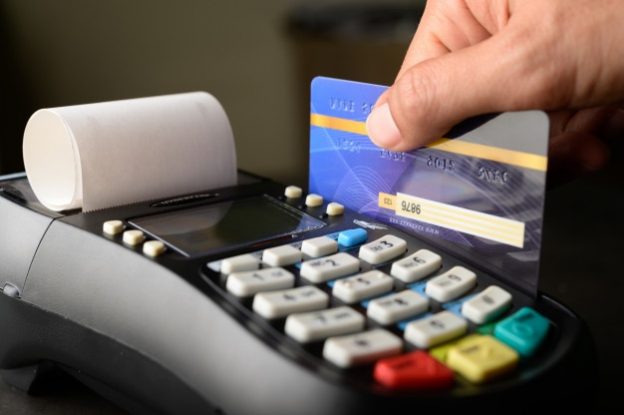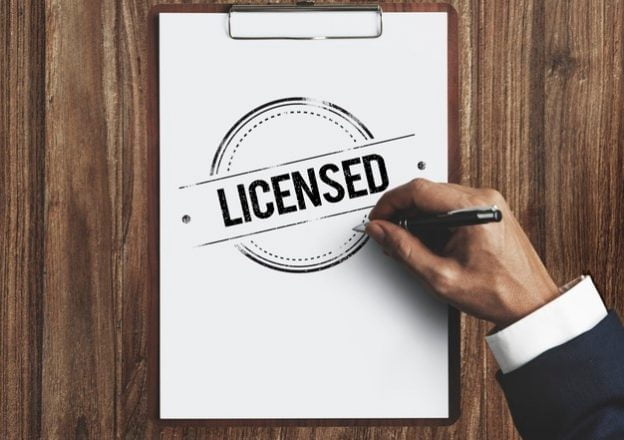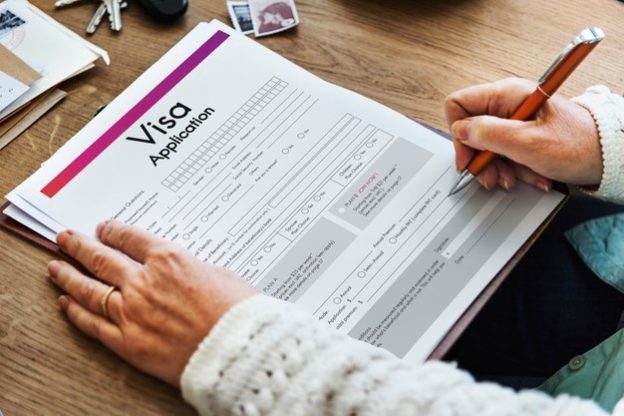Are you considering registering a business in Vietnam?
Great idea: Vietnam is full of opportunities, and there are various business and investment incentives available if you know where to look.
But the procedures and the requirements may seem a bit daunting to you?
There is in fact nothing to be worried about. For most people, the procedure is actually much easier than they first expected. This guide is written for those of you who want to know all the steps of registering a business in Vietnam.
From address requirements to sub – licensing, and from opening a company bank account to applying for your investment visa: this guide covers it all.
Table of Contents
Types of legal structures in Vietnam
Broadly speaking, there are two main company types available to foreign entrepreneurs and investors who want to open a business in Vietnam.
First of all, there is the limited liability or “LLC” option. This is a relatively simple legal structure, which also protects the investor’s private financial resources from the company’s finances.
The second option is the joint stock company or “JSC”. The main advantage of this option is that it is relatively easy to attract new capital and expand the business in Vietnam. However, this advantage, on the one hand, is partially offset by the stricter compliance rules on the other hand.
Please note that the LLC and the JSC are the two most common types to register a business in Vietnam. If you are interested in non – business vehicles, you may have a look at two separate guides that we wrote about: registering a representative office, and registering an NGO in Vietnam.

Important positions for a business in Vietnam
Each registered business in Vietnam must have at least one so – called “legal representative”. He or she is the person who exercises and performs the rights of the company, who represents the company in court proceedings (hopefully not needed), and who generally signs all important documents on behalf of the company.
The legal representative can be a Vietnamese or a foreign National. But there should always be at least one legal representative residing in Vietnam. If he or she leaves the country, then somebody else should be authorized.
Other than that, a company can have one or more “directors”, who are responsible for the day to day operations of the business in Vietnam. And depending on the size of the company, there may also be a chief accountant, who is responsible for the overall (financial) compliance of the company.
Please note that foreigners can indeed be appointed at key positions in a Vietnam – registered business. However, they should take into account the work permit requirements.

Requirements for registering a business in Vietnam
Business lines:
In Vietnam, every company must register one or more so – called “business lines” according to an official classification system. These business lines determine which activities a company is legally allowed to engage in.
Some business lines are completely open to foreign investment, for example: restaurant business, management consulting, and software development. Other business lines are conditional for foreign investment, for example: advertisement, education, and tourism.
And there are some business lines that are closed to foreign investment, for example: anything related to National security.
Ownership:
For many businesses in Vietnam, it is not legally required to have a Vietnamese partner. That would only be the case for business lines that are conditional. For example, a foreign – invested advertising company must have at least one foreign owner, whereby the exact % does not matter.
Of course, there may be other reasons to voluntarily bring a Vietnamese partner on board of your business. For example because of their local expertise and network, and their smooth communications with the relevant Authorities.

Capital requirements:
The Department of Planning and Investment requires foreign investors to commit sufficient capital to a new company. Except for some specific business lines, for example: real estate or tourism, there are no prescribed minimum amounts. However, it should be proportionate to the business plan, and it should be able to cover the company’s costs for around 6 – 12 months.
In practice, the minimum amount depends on the location where you are registering your business in Vietnam. Ho Chi Minh City and Ha Noi are among the most lenient, Da Nang and Hoi An being more strict.
Foreign investors are asked to provide a certified bank statement before the company registration, and they are legally required to transfer the committed amount to the company account within 90 days after registration. From that moment on, the capital belongs to the company and can be used for its operations.
Capital requirements for Vietnamese – owned companies are much less strict. However, if you would like to add a foreign element to the company later on (for example: hire a foreign Director), then the Authorities may require you to increase your charter capital first.
The capital requirements can be a bit burdensome for foreign entrepreneurs who want to register their business in Vietnam. We have written another guide about the costs of starting a business in Vietnam, which also covers the capital requirements.

Location:
In principle, you are free to choose your own location. This could either be an existing location that you rent from a landlord. Or you could rent the land, and build your own place. Buying a place is a lot more complicated since there are still quite a few restrictions when it comes to foreign ownership of real estate in Vietnam.
Apart from that, in some cities in Vietnam, for example, Da Nang and Hoi An, the local Government restricts certain areas for National security purposes. This often means that foreign – owned companies have more difficulties registering their business there than their Vietnamese counterparts have.
But in any case: you must secure a location for your business in Vietnam as part of the incorporation procedures. Normally, you can do so via a signed lease agreement, which you can later transfer to your newly established company.
Got any questions?
Procedures for registering a business in Vietnam
IRC
Every time that a foreigner wants to register a business in Vietnam, they must first obtain an investment registration certificate or “IRC”.
During the procedure for obtaining your IRC, you will be asked about the details of your project. You must explain what kind of business in Vietnam you would like to register, where it is located, how much capital you are going to commit, and whether you would like to engage in any other activities.
The IRC procedure is done with the Department of Planning and Investment in the province or major city where you would like to open your company. It normally takes around 3 – 5 weeks, and foreigners often let a Vietnamese law firm, accountant, or other service provider handle this for them.
ERC
After your investment proposal has been approved, you need to apply for an enterprise registration certificate or “ERC”, which takes around 1 – 2 weeks in practice.
This is basically a certificate for registering the legal structure of your company, and it is required for foreign – owned companies and Vietnamese – owned companies alike. The procedure is much easier and faster than that of the IRC.

Post-registration
What comes after registering your business in Vietnam:
After you have obtained the IRC and the ERC, there are a few more steps to complete.
These include: (i) publishing your company on the national registration website, (ii) obtaining a company seal and registering it, (iii) registering your business in Vietnam with the tax authorities, purchasing value added tax (VAT) – invoices and paying the annual business license tax, and (iv) opening a bank account.
Your service provider can support you with all of these post – certification steps. They are not very expensive, and all together they may take you only around 1 or 2 weeks to complete.

Opening a bank account:
There is a difference here between foreign – owned companies and Vietnamese – owned companies.
A foreign – owned company is technically required to open at least two local bank accounts: (i) a so – called “capital account” for the transfer of the investment capital, the remittance of profits, etcetera, and (ii) a current account.
Most banks in Vietnam are well aware of these requirements, and apart from the normal paperwork, opening these accounts will not be difficult. Please keep in mind that company owners are required to transfer their committed investment capital into the company account within 90 days after business registration.
Vietnamese – owned companies do not need the capital account, and even a current account is strictly speaking not required. We have written another guide about opening a bank account in Vietnam for foreign individuals. Please find it via this Expat guide: How to open a bank account in Vietnam – 2022 edition.

Sub – licensing:
After having obtained your IRC and your ERC, you may be required to also obtain your “sub – licenses”. This is only required for businesses in Vietnam with specific business lines. For example: when registering a food and beverage business in Vietnam, you will need to apply for a food safety and hygiene certificate.
This comes after you have obtained your IRC and ERC, and also after you have completed your kitchen and sanitary facilities. There will be a written application and a physical inspection by the Local Authorities.
It normally takes around 3 – 4 weeks. Now depending on whether and how you would like to sell alcohol at your food and beverage business in Vietnam, you may also need to register for that. Other examples include: the tourism sub – license, education sub – license, retail sub – license, etcetera.
For more details about starting a food and beverage business in Vietnam, please have a look at our guide on How to open a cafe or restaurant in Vietnam.

Visas or TRC:
One of the benefits of registering a business in Vietnam is that it can make you eligible for a long term visa, or even a temporary residence card (TRC).
There are two main options: (i) investment, or (ii) labor. Investment visas and TRCs are for company owners, and since 1 July 2020, the maximum length is directly linked to the amount of investment. Labor visas are for company employees, which also includes directors and legal representatives, and the maximum length is two years (renewable).
Since 14 February 2021, only company owners with an individual investment of more than VND 3 billion are exempt from Vietnam’s work permit requirement. Other company owners and most employees need to obtain a work permit before being granted an investment – or a labor visa, or TRC.

Corporate compliance for a business in Vietnam
General compliance:
In order to ensure the longevity of your business in Vietnam, we highly recommend you to make sure that your company is and stays legally compliant as much as possible, from the very beginning.
Among other things, this means that you should obtain all licenses that are required for your field of business, that you should sign contracts with your customers and your suppliers, and that you use and issue tax invoices as much as possible.
It also means that you should ensure that your accounting is in order, that you report and pay your taxes on time, and that you do your regular reporting to the various Vietnamese Government authorities. Your accountant is in a very good position to take care of this for you, but some tasks can also be done by yourself, or by your business registration service provider.
If you are interested, you can have a look at this guide Business Tax Timeline In Vietnam that was written by Bizspective’s tax expert. It includes a detailed compliance timeline for taxation in Vietnam.

Accounting:
Needless to say, accounting is a very important part of running a business in Vietnam. Bigger companies often choose to hire a full – time accountant. He or she is not only in charge of the company’s internal bookkeeping, but also of invoicing, paying and collecting from customers and suppliers, filing tax reports, paying tax, reporting, and general compliance.
A popular alternative is to hire the services of an external accounting company. They can do all of these things as well, but there is no need to hire a full – time accountant. Accounting in Vietnam is governed by the Vietnamese Accounting Standards, and most of it is done in Vietnamese only.
Taxation:
Most registered businesses in Vietnam will be dealing with the following types of tax: (i) corporate income tax or “CIT” of which the standard rate is 20%, (ii) personal income tax or “PIT” of which the rate varies from 5 to 35%, (iii) social insurance which is around 31% in total, and (iv) value added tax or “VAT” of which the standard rate is 10%.
These taxes are paid either monthly, quarterly, or annually. Depending on your field of business and your location, tax incentives may apply. In practice, most companies either hire a full – time accountant or outsource this service to an external tax company.
In any case, it is highly recommended to get this correctly on track from the very start of your business in Vietnam. For more details about corporate taxes for business in Vietnam, please have a look at this guide Corporate taxes in Vietnam.

Time frames for registering a business in Vietnam
The formal procedures for registering a foreign – owned business in Vietnam take around 2 months in total, whereas a Vietnamese – owned business can be registered in just 2 weeks. This does not take into account preparation time, which depends on each individual project of course.
And it also does not include the post – registration steps including sub – licensing and visa procedures which will easily take several extra weeks each. So we do recommend you to calculate enough time, and to start early.

Fees for registering a business in Vietnam
Registration fees:
Service providers who can help you register your business in Vietnam come in all sorts, offering a broad range of prices.
Often in Vietnam, you get what you pay for. From our many years of experience in Vietnam, we believe that an amount of between USD 1,500 and 2,500 is reasonable for the registration of a foreign – owned business in Vietnam.
For a Vietnamese – owned registration, that would be between USD 500 and 1,000. This normally does include most of the post – registration steps, but it does not include sub – licenses or visas.
Recurring fees:
As a registered business in Vietnam, there are several recurring fees to keep in mind. First of all, every company is subject to a so – called annual license fee. The first year of being a registered business in Vietnam is free, and after that it will be around VND 2 million, depending on the size of your company. Secondly, there are various taxes and insurances to be paid on a monthly, quarterly, and annual basis.
Furthermore, foreign – owned companies are subject to a compulsory financial audit at the end of every financial year. For online tax payments and reporting, you may need to buy a digital USD token, which needs to be renewed every few years, depending on your contract.
If you are interested to learn more about the costs of running a business in Vietnam, please have a look at this separate guide that we wrote specifically for that topic.

More information about registering a business in Vietnam
We hope that you found this guide useful, and that it has given you some insights into what it takes to register your own business in Vietnam.
If you would like to learn more about this don’t hesitate to contact our team directly. Or, you can chat with our Ai bot and receive a customized business start-up report within 24 hours. And if you want to speak to an expert consultant, you can take a look at our experts via this link.
